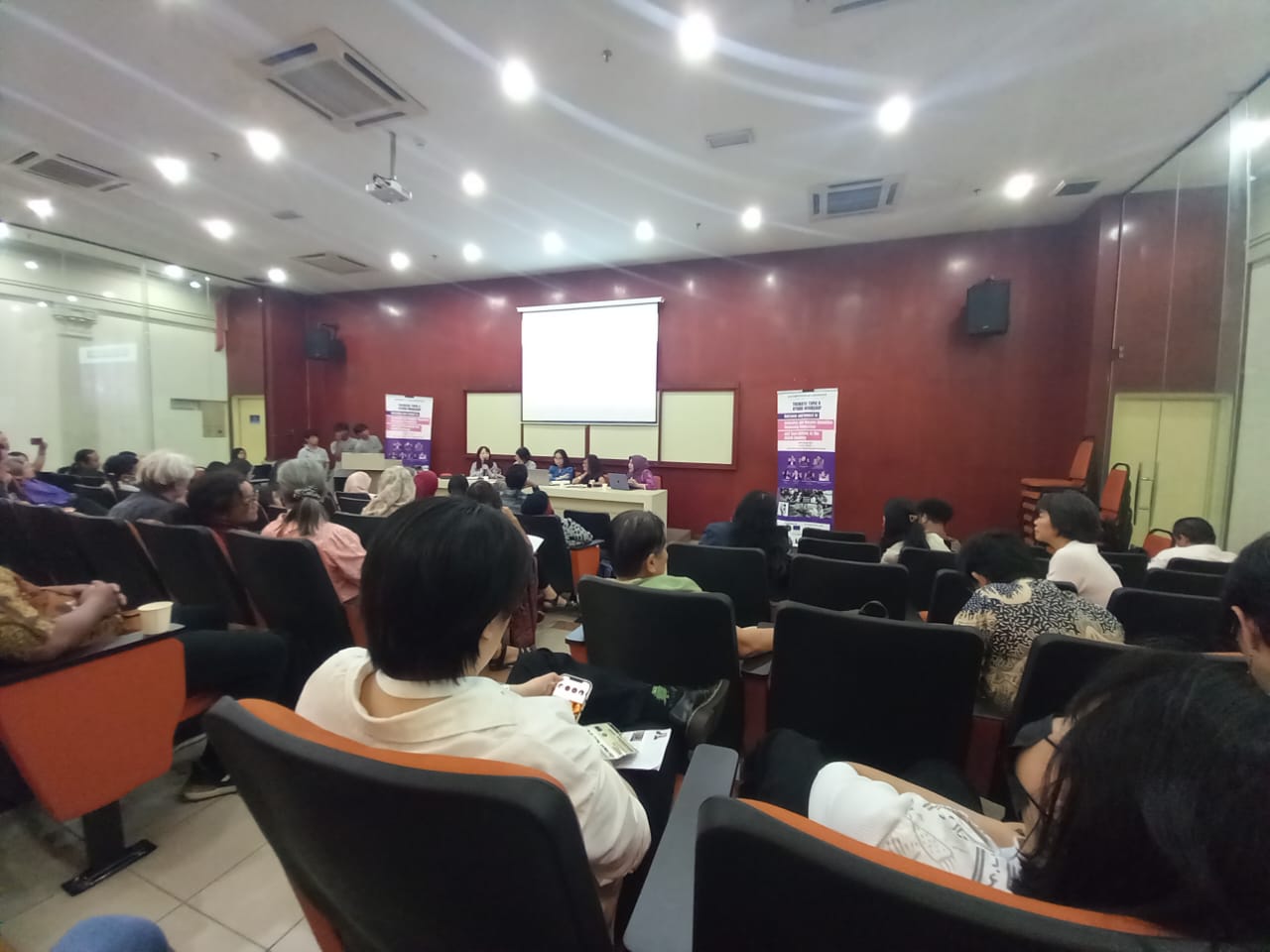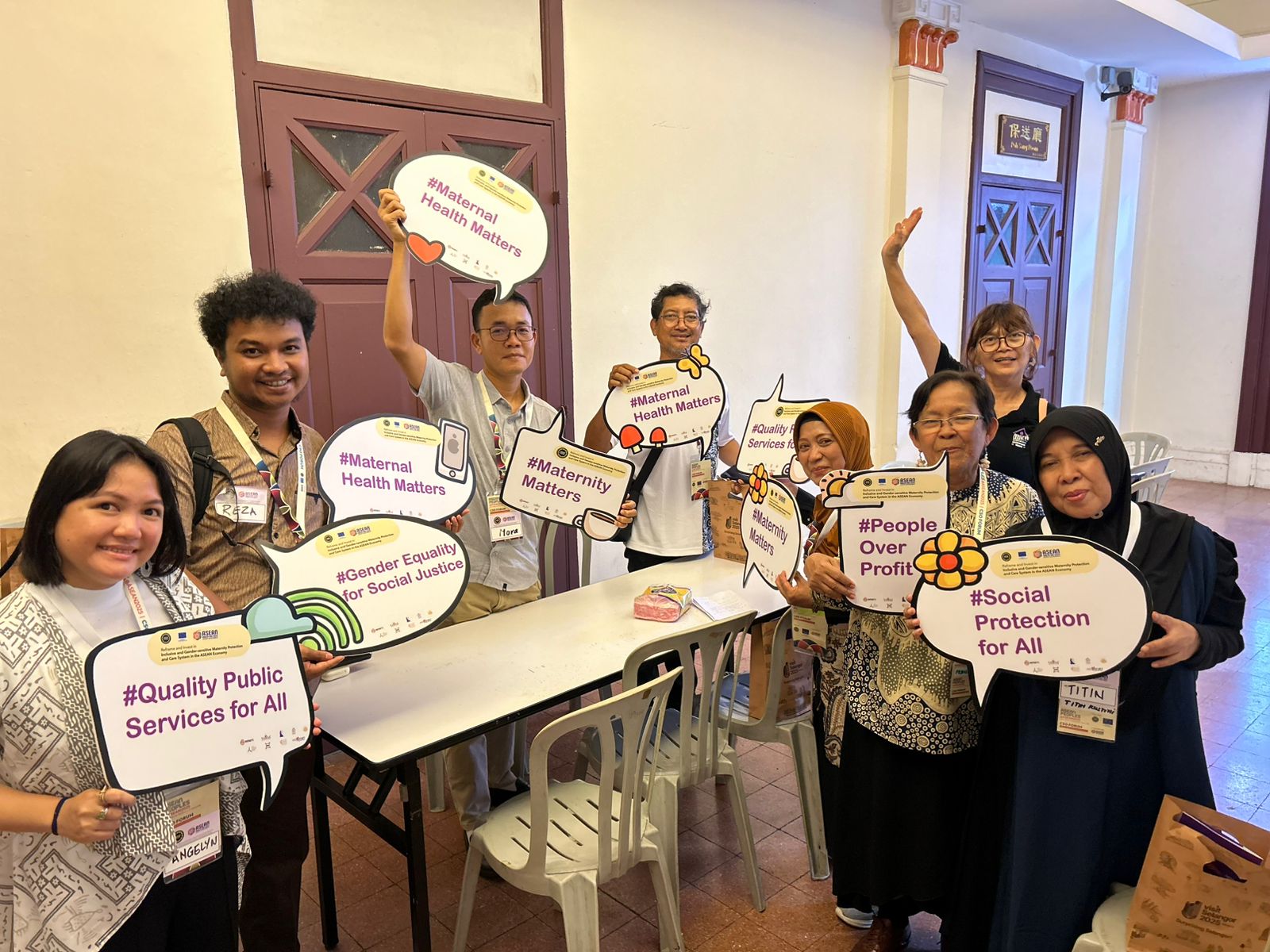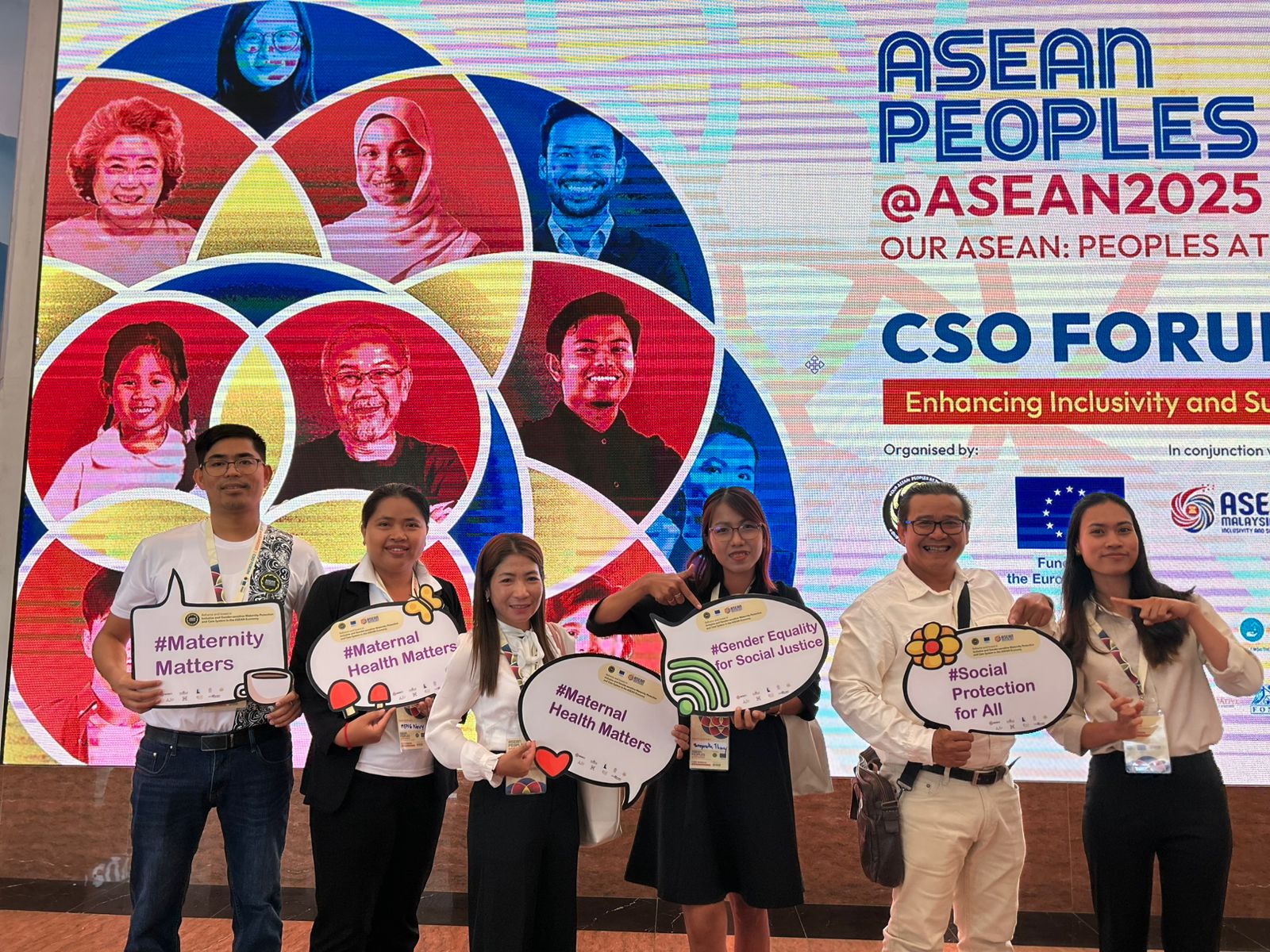![$rows[judul]](http://iycw-aspac.org/asset/foto_berita/WhatsApp_Image_2025-06-04_at_14_43_31_1b37b25a.jpg)
Kuala Lumpur,
Malaysia — From May 23 to 26, 2025, as Malaysia hosted the
high-level ASEAN Summit, civil society voices rose in parallel through the
ASEANPEOPLES@ASEAN 2025 gathering. Among those who joined were the
International Young Christian Workers (IYCW) Asia-Pacific, a strong advocate
for workers’ rights and social protection in the region.
Organized by
Martabat Untuk Semua, together with regional networks such as AMRC, AROSP,
HomeNet Southeast Asia, and WIEGO, the event brought together civil society
organizations (CSOs) from across Southeast Asia. The aim: to challenge ASEAN’s
economic priorities and push for policies that put people, especially workers, at
the center.

Young Workers
in the Fight for Care and Protection
As part of
the forum, IYCW-ASPAC actively contributed to Thematic Issue 8, titled:
“Reframe and Invest in Inclusive and Gender-Sensitive Maternal Protection and
Care Systems in the ASEAN Economy.”
Speaking from
their direct experiences with young women workers in factories, informal work,
and service sectors, IYCW emphasized that many young women are still denied
adequate maternity leave, childcare support, and access to
healthcare—especially those in precarious or informal employment.
“A truly
inclusive economy must recognize the care work and reproductive roles that
sustain society. Maternity protection isn’t a privilege; it’s a right. And yet,
it remains out of reach for millions of young workers in ASEAN,”
stated by Nanang Ibrahim, IYCW-ASPAC delegate during the discussion.

Key Demands:
Protection, Investment, and Action
In
collaboration with other CSOs, IYCW-ASPAC helped shape policy proposals and
recommendations aimed at ASEAN leaders. Among the major demands:
The shared
vision is clear: an ASEAN that invests in care is an ASEAN that invests in the
future.
A Collective
Voice from the Grassroots
The outcome
of this engagement was the Advisory Paper to the ASEAN Chair 2025, which
included the demands from all thematic issues—endorsed by 243 organizations
across the region. IYCW-ASPAC proudly stood as one of them, adding its name to
a growing coalition of workers, women, and grassroots groups pushing back
against systems of neglect and exclusion.
Continuing
the Struggle Beyond the Summit
For IYCW,
this forum was not just an event, but a continuation of its commitment to build
power from the base. The movement remains grounded in the everyday realities of
young workers—especially women—who are often the first to suffer from poor
social policies and the last to be heard.
“If ASEAN
wants to talk about inclusive growth, it must start with listening to those who
keep the economy running—our young workers, our caregivers, our mothers. We’re
not just advocating. We’re organizing.”
As IYCW-ASPAC
returns to its base groups and national movements, it carries with it renewed
energy and a united vision: a just ASEAN where no worker is left
behind—especially not those who care for life itself.
Write comment